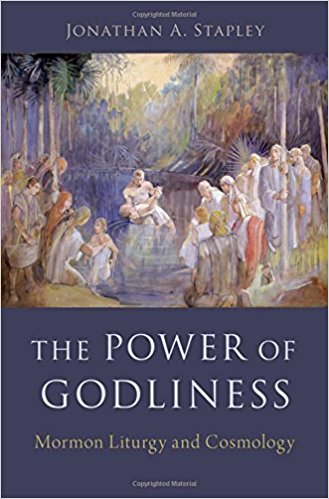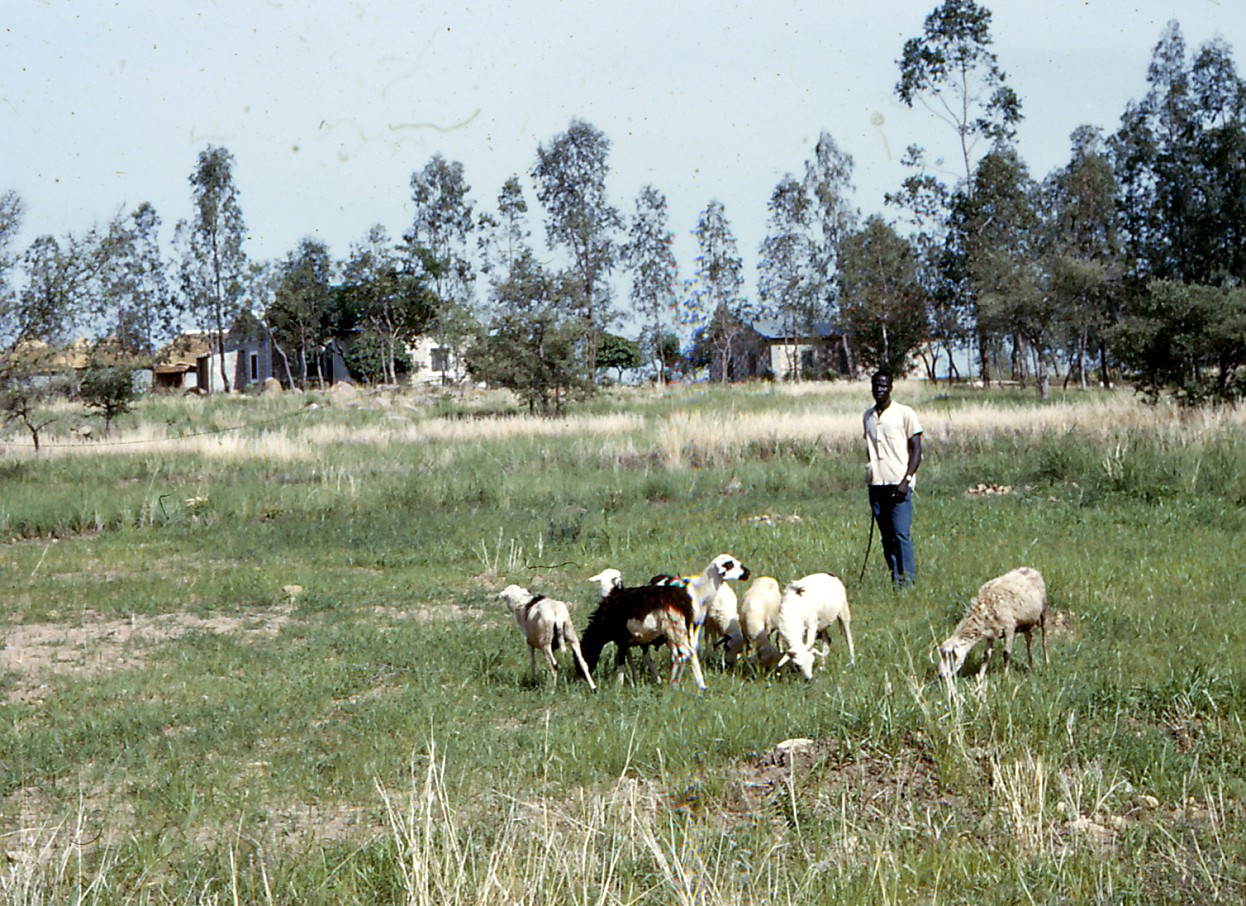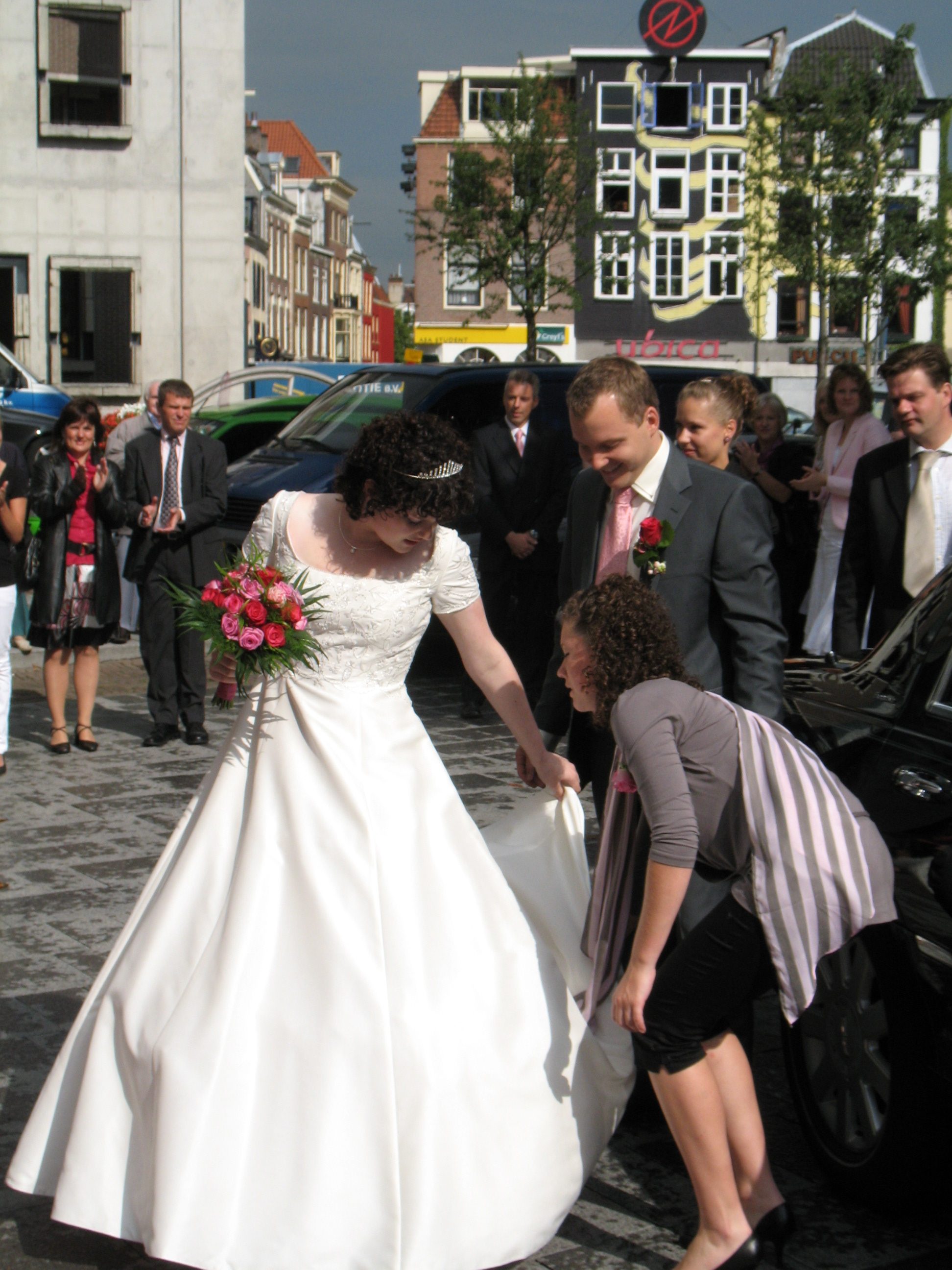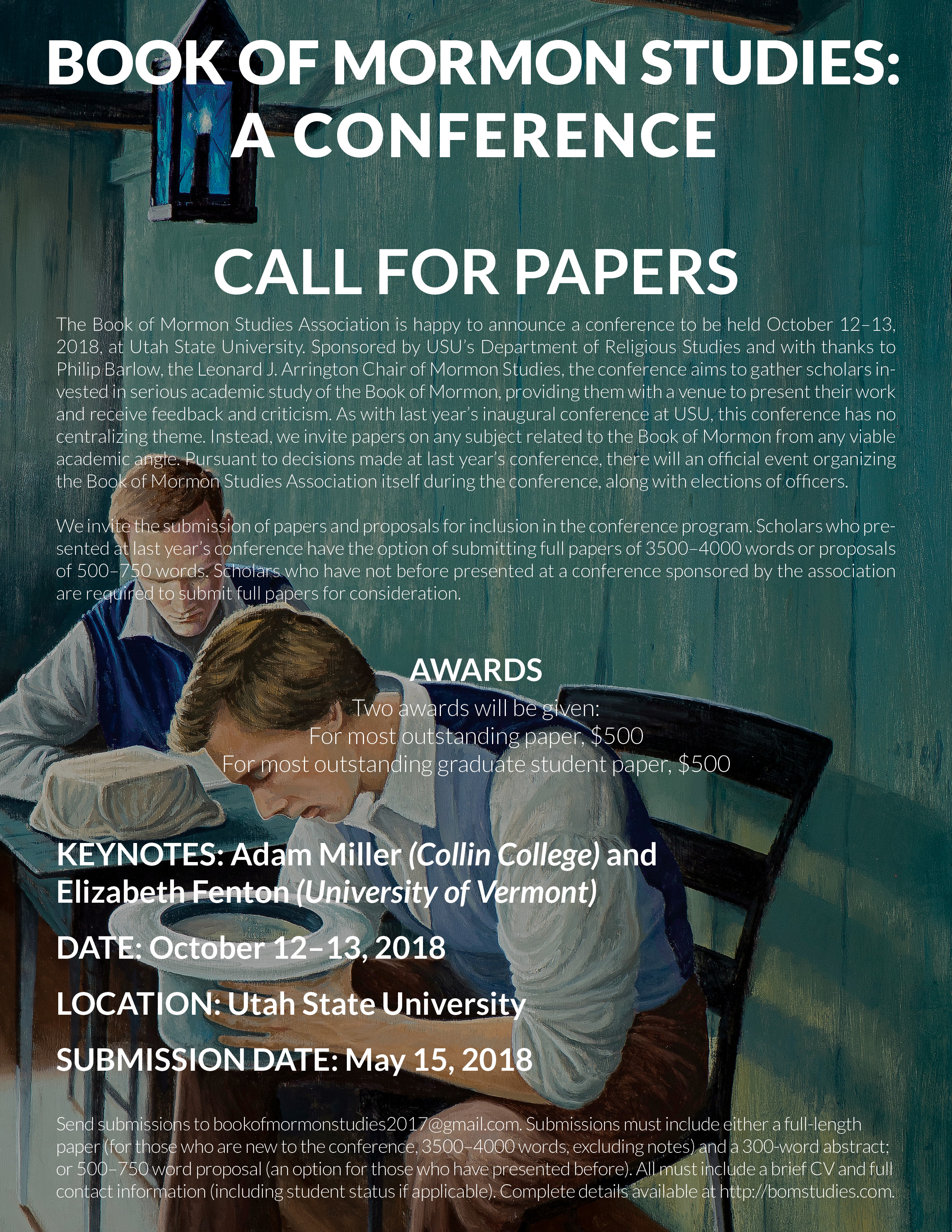-
•
•
10 responses

I know the travails of the Salt Lake Tribune and then smaller papers like the Daily Herald in Provo and the Ogden Examiner don’t seem directly LDS related. However all these papers, along with the Deseret News, tend to cover religious topics. It’s worth discussing what’s going on. Read More
-
•
•
3 responses
In D&C 46:11 we read, “there are many gifts, and to every man is given a gift by the Spirit of God.” I’ve long taken that to mean that literally every person on earth has a spiritual gift, if they’ll hearken to the light of Christ. Often we don’t realize just how many gifts we are making use of until we’re released from a calling or if we get out of tune with the spirit. At that point skills and abilities we depended upon leave. The question is, however, whether D&C 46:11 is speaking of all people[1] or just people… Read More
-
•
•
9 responses

Like a paring knife to a grapefruit, Jonathan Stapley’s new book on the history of Mormon cosmology is slim, sharp, and swift to carve through pith, serving up elegant wedges of history. The Power of Godliness: Mormon Liturgy and Cosmology (Oxford, 2018) traces the evolution of ritual practice in Mormonism, including priesthood ordination, sealing rites, healing practices, baby blessings, and folk divination. The author’s reticence to extract neat diagrams from his findings is a virtue of the book, and any summary should be offered advisedly. Taken together, however, the chapters show a gradual migration from civic- to kinship- to church-centered… Read More
-
•
•
30 responses

In his recent world tour President Russell Nelson visited Kenya and spoke about a specific cultural custom in Kenya, the bridewealth or bride price. President Nelson called it ‘dowry’, which is technically incorrect, but that is not the issue I want to raise here. Bridewealth consists of the valuables that are transferred from the family of the groom the father of the bride, as a compensation for the loss of a woman. Dowry are the valuables a bride takes with her into her married state, often part of her inheritance, to be used by her and/or her husband. African marriages,… Read More
-
•
•
62 responses

Over at Faith Promoting Rumor G Wesley has up a post critiquing BYU’s scholarship. The main bone of contention was a talk by Elder Bednar regarding scholarship at LDS schools. Wesley responds that BYU should “first and foremost places set apart for critical thinking and the scientific method.” Read More
-
•
•
7 responses
All my life I’ve imagined the Book of Lehi—those tragically lost 116 pages—as having been written by Lehi. But the Book of Lehi was engraven on plates Read More
-
•
•
10 responses

Today I am pleased to present a guest post from a good friend of the blog, Samuel Morris Brown. I learned to cook when my wife was recovering from cancer surgery. There’s a hollowness, kindred to cancer, hungry to swallow you up when a beloved’s life is threatened. I still remember, with a soul-deep ache, that time when her body was a battleground for scalpeling surgeons and monstrously deformed cells. Those harrowing days are a distant memory now, but that fulminant awareness of her mortality still haunts me. I’ve seen a lot of death in my short life; nothing disoriented… Read More
-
•
•
8 responses
This post is part of a series of reflections on I Nephi. If you’re interested, the introduction to the series is here. To peruse earlier entries, click the authors tab at the top of the page and then click on my name. I welcome your own thoughts on these specific verses (or on my reflections) in the comments below. * * * * I Nephi 18:23-19:1 They arrive at the promised land. They pitch their tents. I can’t help but picture elation and Hollywood scenes of the family kneeling to kiss wet sand as water rolls over their feet. They made it!… Read More
-
•
•
61 responses

This post is about ritual, not doctrine, so it is about the form of worship, not its theology. I will use the word ‘ritual’ for all formalized forms of worship, Mormon and other, even if we use ‘ordinances’ in our own ‘Mormonese’, but ‘ritual’ is the generally accepted term. Rituals are important since as symbols in action they are ‘sticks to lean on in worship’. In the Mormon church we have quite some rituals, like the sacrament, prayers, testimony bearing, baptism, laying on of hands, administering, and of course the temple is a house full of rituals. My thesis in… Read More
-
•
•
34 responses
The term “prosperity gospel” describes an execrable set of ideas in American Christianity, chiefly that wealth is a marker of righteousness, and that believers can ensure material wealth and prosperity through spiritual practices. But “prosperity gospel” is often applied to a much broader set of beliefs Read More
-
•
•
10 responses
You’ve probably noticed I’ve not been around much of late. I was fighting off a case of the flu which seemed to be persisting a tad long. I figured it might be a secondary lung infection as I was also having fevers at night. I went to the local Instacare expecting to pick up an antibiotic prescription. Much to my shock, I had an infection but not in my lungs. It was in my heart. Read More
-
•
•
2 responses
Continuing our work with the 10 Questions team, we are pleased to present Kurt Manwaring’s interview with Spencer Fluhman, Director of the Neal A. Maxwell Institute for Religious Scholarship at BYU and an editor of “To Be Learned is Good: Essays on Faith and Scholarship in Honor of Richard Lyman Bushman.” Manwaring and Fluhman cover a wide range of topics during their discussion, which is well worth reading in full. A couple of highlights that stood out to me include Fluhman describing the mission of the Maxwell Institute: The Institute is a research unit dedicated to religious topics but defined in particular… Read More
-
•
•
4 responses

One week before general conference I got up in High Priest Group and conducted the meeting for the first time. We’d moved into the ward six months ago and I’d just been called as the new group leader. Sunday the Stake Presidency called me in and officially released me. We all thought it was pretty funny. No one seemed to be bothered by the fact that a calling we’d expected to last for some time was over so soon. Certainly that calling and a couple weeks in it taught me something. Perhaps it even helped somebody else. What looks like… Read More
-
•
•
As part of our work with the 10 Questions team, we will be posting later this week on Kurt Manwaring’s upcoming interview with the Maxwell Institute’s Spencer Fluhman. In the meantime, however, we thought we would highlight a great interview 10 Questions recently posted with Jonathan Stapley, bloggernacle regular and author of “The Power of Godliness: Mormon Liturgy and Cosmology” (Oxford University Press). In his interview, Stapley notes of his new book: “[I]n The Power of Godliness, I look at the history and development of core ideas essential to current Mormon identity such as priesthood, authority, and ordinances. I also analyze how women… Read More
-
•
•
29 responses
Meeting with my ward high priests group has been one of my favorite parts of the week for several years. Read More
-
•
•
To promote #10questions interviews about “To Be Learned is Good” with Richard Bushman, @spencerfluhman, Laurel Thatcher Ulrich and @patrickqmason, @MI_BYU is sponsoring a book giveaway. FOLLOW & RT on Twitter by April 5 for a chance to WIN A FREE COPY. Read More
-
•
•
4 responses
Based on a talk given this Sunday in sacrament meeting. This year, Easter and General Conference are on the same day, which illustrates how we measure time in multiple ways. Read More
-
•
•
2 responses
This post is part of a series of reflections on I Nephi. If you’re interested, the introduction to the series is here. To peruse earlier entries, click the authors tab at the top of the page and then click on my name. I welcome your own thoughts on these specific verses (or on my reflections) in the comments below. * * * * I Nephi 18:17-22 Above all, this passage reveals the deep hypocrisy of Laman. In verse ten Laman is the adamant defender of tradition and the cultural norms that ought to govern our lives—he refuses to accept rule from a… Read More
-
•
•
4 responses
Murmuring undermines one’s relationship with God and one’s ability to cope either with the storms of the cosmos or the wounds inflicted by our family members. Read More
-
•
•
27 responses
In the current unhappy state of online Mormon discourse, stating the obvious is sometimes controversial, and for that reason all the more necessary. Read More
-
•
•
The Society for Mormon Philosophy and Theology will be meeting at Utah State on Friday-Saturday, March 16-17, with a focus on “The Exaltation Revelations,” D&C 76, 84, 88, and 93. The program includes talks on divine justice, the potentially universal scope of salvation, the law of the celestial kingdom, the role of the priesthood in salvation, and various perspectives on the eternal nature of humans and our kinship with God. Many of the most distinctive Latter-day Saint teachings appear in a series of revelations received in 1832-33, and recorded in Doctrine and Covenants sections 76, 84, 88, and 93. Richard… Read More
-
•
•
8 responses
In October 2007, I returned home to Texas from my mission in Nevada. In April of the following year, the raid on the YFZ Ranch near Eldorado, TX, occurred. I didn’t think much about it at the time because, you know, they weren’t real Mormons (as many LDS are wont to say). However, a good (non-member) friend called me soon after the raid and posed some questions about these polygamists Mormons, seemingly bothered that one of his best friends was mixed up in an abusive cult. I was likely too dismissive of his concerns, largely due to the mentality above.… Read More
-
•
•
10 responses
“And they did worship the Lord”—that’s the conclusion to the whole row. I wonder at it. What was the change? Read More
-
•
•
-
•
•
2 responses
As part of our work with the 10 Questions team I’m proud to announce their interview with Matthew J. Grow and R. Eric Smith, editors of The Council of Fifty. The council of 50 is one of the more mysterious bodies Joseph Smith organized. Many people didn’t know of this government body in waiting that included non-Mormons. Those that have heard about it often have a lot of erroneous ideas. Check out both the interview and book. Read More
-
•
•
8 responses
Just a quick post on the current kerfuffle over wordprint studies. Wordprint studies are a type of stylometry that look at certain connective words that aren’t main words in a sentence. The claim is that they can determine the authorship of a text. Now I’ve always been skeptical of this, even back in its heyday in the 90’s. The main problem is of course that depending upon how you slice up the text you get very different answers. More significantly with the text from Mosiah through Mormon the author is primarily Mormon. It’s basically impossible to tell, even if a… Read More
-
•
•
19 responses
The eternal cosmological drama in which we’re embedded demands that we work to reflect the divinity of our enemies back to them if we wish them to join with us in our Zionic alliance of apotheosis. And whether we do, that is what we ought to wish. Read More
-
•
•
8 responses

Back when I first was invited to join T&S I started doing a series on Hell in the Book of Mormon. This is the long delayed follow up. Last time I discussed the three broad categories of how hell has been viewed theologically. This time I want to start focusing on the metaphors and typology used to deal with hell in the Book of Mormon with a particular focus on the “lake of fire and brimstone.”[1] Read More
-
•
•
29 responses
What will you do the next time your client drops you into a real-world instance of the prisoner’s dilemma? Read More
-
•
•
34 responses
This is a powerful ethic. I feel its pull deeply. But there is a second half, a dark side Read More

